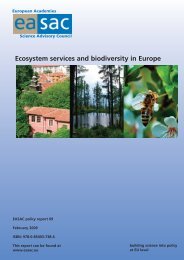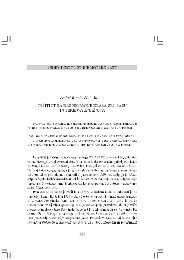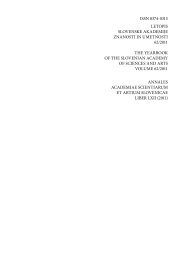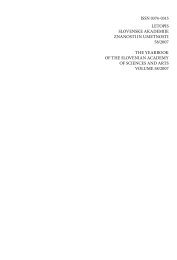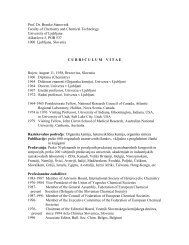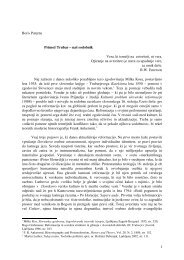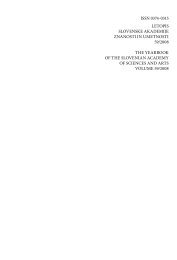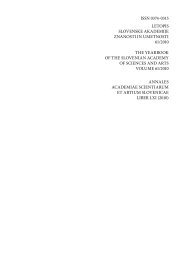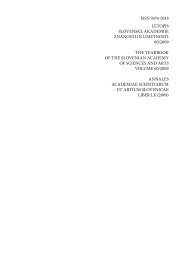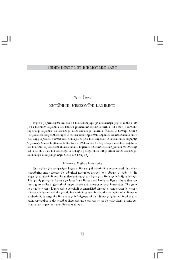Taking Inquiry-Based Science Education into Secondary ... - SAZU
Taking Inquiry-Based Science Education into Secondary ... - SAZU
Taking Inquiry-Based Science Education into Secondary ... - SAZU
Create successful ePaper yourself
Turn your PDF publications into a flip-book with our unique Google optimized e-Paper software.
4<br />
<strong>Taking</strong> IBSE <strong>into</strong> <strong>Secondary</strong> <strong>Education</strong><br />
<strong>Taking</strong> <strong>Inquiry</strong>-<strong>Based</strong> <strong>Science</strong><br />
<strong>Education</strong> (IBSE)<br />
<strong>into</strong> <strong>Secondary</strong> <strong>Education</strong><br />
Preface<br />
The Inter Academy Panel on International Issues, which represents over<br />
100 National <strong>Science</strong> Academies, has been implementing a global <strong>Science</strong><br />
<strong>Education</strong> Program which has the objective of improving science education<br />
at the pre-university levels in all countries and regions of the world. The IAP<br />
<strong>Science</strong> <strong>Education</strong> Program has specifically opted for the promotion of the<br />
inquiry-based science education (IBSE) approach.<br />
During the first years the IAP effort has concentrated in introducing IBSE in primary schools. However,<br />
responding to the demand from several countries and regions, it has been decided to explore the extension<br />
of this type of education <strong>into</strong> secondary schools. In order to examine the different issues that are involved<br />
in this extension it was agreed to convene this International Conference on <strong>Taking</strong> IBSE <strong>into</strong> <strong>Secondary</strong><br />
Schools in order to :<br />
• discuss the specific issues that are involved in introducing the IBSE approach <strong>into</strong> secondary schools;<br />
• learn from the experience of projects that are using IBSE in secondary schools in different regions of<br />
the world;<br />
• promote the involvement of science academies in efforts to introduce IBSE <strong>into</strong> secondary schools in<br />
their communities;<br />
• stimulate international collaboration in the improving the quality of science education for all young<br />
people.<br />
This conference would not have been possible without the support and hard work of many people including<br />
members of the IAP <strong>Science</strong> <strong>Education</strong> Programme’s Global Activities Committee, the conference organising<br />
committee, and staff at the National <strong>Science</strong> Learning Centre. There are too many to list by name here but<br />
their contributions are greatly appreciated. Special thanks must go to Zena O’Connor (Wellcome Trust) and<br />
Patricia Droguett (University of Chile) who carried the burden of the administration for the conference.<br />
Thanks must also go to those organisation who have kindly supported the conference through funding and<br />
other resources: ALLEA (All European Academies), IAP, the National <strong>Science</strong> Learning Centre, York UK, the<br />
Royal Society, and the Wellcome Trust.<br />
The Conference Organising Committee:<br />
Jorge Allende,<br />
Derek Bell,<br />
Wynne Harlen,<br />
Pierre Lena,<br />
Alice Pedregosa<br />
Report by Wynne Harlen<br />
Report on the conference, York, UK, October 27-29 2010



